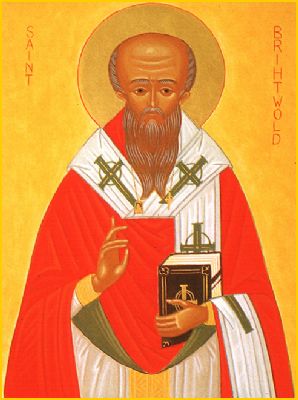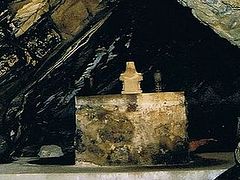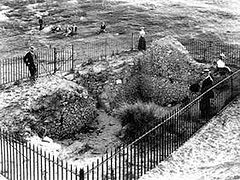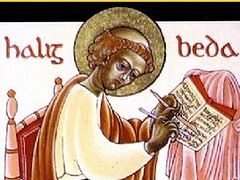On November 8, 2010, five Anglican bishops resigned from their positions and entered the Roman Catholic Church. This change had been brewing ever since the Anglican Church began to make unprecedented changes, most sharply the the ordination of women and homosexuals into the priesthood and even bishoprics. Traditionalists, the departing bishops expressed their regret, but felt they had to do it. Their future is uncertain, as is the future of those traditionally minded Anglicans who remain in their own Church. In view of these historical changes, Pravoslavie.ru/OrthoChristian.com recommends a work by Fr. Andrew Phillips, an Orthodox priest who serves in St John's Orthodox Church, Colchester, England. His booklet provides an insightful overview of Christian history in England; it sheds light upon the true tradition of Anglo-Saxon Christianity, and how the English could regain it. The booklet can be read in electronic form on his website:
http://www.orthodoxengland.org.uk/pdf/Orthodox_Christianity_and_the_Old_English_Church.pdf
‘The Kingdom of the (Old) English is the Kingdom of God,
and God has been pleased to make provision for the future.’
The Vision of St Peter to Bishop Berhtwald
 St. Brihtwold (Berhtwald), Bishop of Ramsbury, Wiltshire.
St. Brihtwold (Berhtwald), Bishop of Ramsbury, Wiltshire. Indeed, it is our belief that if we are only now awakening to the importance of this centre and all that it represents, then it is also because we are only now awakening to the significance of the first centuries of Roman Christianity among the Old English, awakening to the historical meaning of the Conversion of Anglo-Saxon England by the Apostles. For, as it would seem, there are deep but clear currents linking the Apostles of our land from Old Rome, and the City of Constantinople, New Rome. At the end of the Old English period, these currents appear to be all the more evident, as we shall see. This is not to say that we in any way deny the pre-eminent role of the Papacy in the Conversion of England, rather we wish to underline it but also to make a distinction. This distinction is between the Papacy of St Gregory the Great, and that of Hildebrand, Gregory VII, in the eleventh century. The Rome of St Gregory the Great was an integral and essential part of a Christian Commonwealth, which since the mideleventh century has been no more. Since then, moreover, the Roman Patriarchate has itself fallen into several parts, one of them being Canterbury.
In an age where unity is so much sought after, it is thus our task to present to the reader some little part of the unity of that Christian Commonwealth, as it can be seen in the history of Anglo-Saxon England, most particularly at its beginning and at its ending. This we do with the wish that one day this former Commonwealth will be spiritually drawn together once more. Moreover, it is our belief that this will occur when the Western world itself is rebalanced by its full participation in the spiritual heritage of Constantinople, the Orthodox Church. In so doing it will rediscover its own spiritual roots, from which it has wandered so far. This is not wishful thinking, for one of the greatest saints of the Old English Church, St Edward the Martyr, is today venerated in a monastic brotherhood of the Orthodox Church at Brookwood in Surrey. There his relics, miraculously recovered, are enshrined and the faithful come to venerate them and his holy icon. He, we believe, is the first-fruit of the restoration of England’s spiritual heritage. May Thy Will be done O Lord.
http://www.orthodoxengland.org.uk/pdf/Orthodox_Christianity_and_the_Old_English_Church.pdf




The above statement excludes the Theotokos, who gave birth to God the Word, O Light-bearing tabernacle.
I use much of Father Phillips excellent written work on my educational web site: www.oldenglishchurch.org.uk, for which I am extremely grateful.
Servant of God Michael
May God bless you! With love in Christ,
Irina
Eugenia